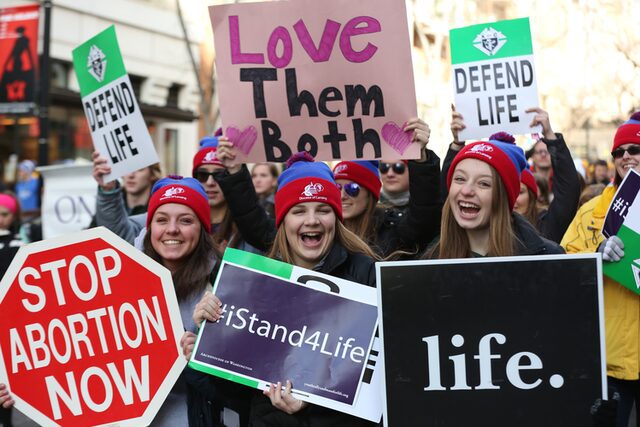The anniversary of Roe v. Wade: 51 years later
Disclaimer:
All articles published within this section of The Cor Chronicle are the opinions of the respective authors and do not necessarily reflect the opinions of The Cor Chronicle.
This month marks the 51st anniversary of the Roe v. Wade decision, the supreme court ruling that legalized abortion throughout the United States. Of course, Roe itself was overturned, struck down by the Dobbs decision less than two years ago, but we commemorate the anniversary with sorrow nonetheless.
Why do we do so? Since Dobbs, there have been many discussions about the post-Roe world and what the prolife movement will look like. But, as many prolife leaders have pointed out, the struggle for life has in no way ended; it has simply entered into a second, more bitter stage. Indeed, looking around us, the situation is rather sobering.
One may rightly celebrate that there are places — such as the state of Texas — in which abortion numbers have diminished. One may be happy that some laws and lawmakers display a more adequate understanding of human dignity and the fundamental gift of life. Yet, these gains ought not to blind us to the fact that the pro-life situation is not outstandingly different from what it has been. It does not differ majorly from what it was two years ago, nor does it differ majorly from the way it has been for centuries.
In short, the willful killing of unborn human persons — which, by definition, is murder — remains a fundamental issue in the United States. One cannot simply ignore it, nor should one categorize it as only one among an assortment of life issues. It must be talked about in its own right and talked about most of all. There is no violence in the history of our nation but slavery that is comparable to the way in which abortion eats at the heart of our society.
Abortion does not merely arise from the perennial disrespect for women, for children, for those perceived as different, it drastically furthers these disrespects. It grows from a contraceptive culture in which one can willfully negate the personhood of another for one’s own pleasure.
But it also surpasses this evil. In merely the number of human lives that abortion destroys, it leaves a statistical devastation that is hard to fathom.
On the individual level, of course, abortion also wrecks human life—and not only that of the child. It leaves behind guilt and depression, self-accusation and loneliness. Abortion has not changed throughout its history; like all sin, it constantly destroys human lives in all their uniqueness.
Sometimes it is too easy to lose sight of the particularity of the sin of abortion and to roll all abortion up into a vast, mechanical and modern genocide. There is a reason, however, that abortion was discussed even in the Catholic Middle Ages. It is not a product of modernity but a result of fallen nature.
When we keep this aspect of abortion in mind, namely, that it is an intensely personal sin, a sin that hurts per- sons in every imaginable way, we may also become aware of the beautiful opportunities for evangelization that arise. When we participate in pro-life dialogue, for instance, we may see that it is unfitting simply to pursue the “correct answer” or the “correct enough answer” in our interlocutors, the kinds of responses that might adequately assure us of a pro-life vote next election but reach no further. In such opportunities, rather, we discover ways to draw another human soul into a fuller understanding of the goodness of life, an understanding which we ourselves have received as pure gift. In this understanding, life is good precisely because it is life. Moreover, we not only recognize the life of unborn children as good, but we witness to life in every form, including the life of the soul in the person with whom we are speaking.
In my limited experience in pro-life dialogue, which involved talking to college students at a nearby campus, I was saddened to discover the way in which the culture of death — to use Pope John Paul II’s term — so perniciously undercuts the idea of personal dignity. It does not always stir up anger but engenders, instead, a fundamental indifference.
For the one ensnared by this indifference, it is hard to see why abortion is all that important. More tragically, perhaps — as one of my dialogue partners disclosed — it also be- comes hard for them to see how they themselves matter, or why their own parents should not have aborted them.
Care, then. Care not only to eradicate abortion and to do whatever you can do to support the lives of the unborn and their mothers, but care too about every single human life you encounter. Remind others, in a world so full of death, that life is a gift that must be eagerly received and dearly loved.
